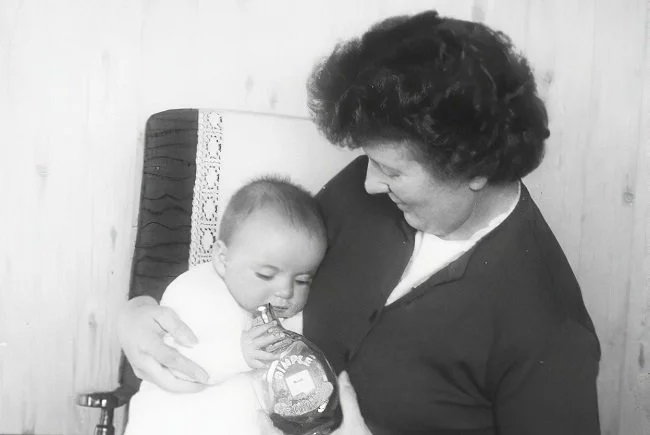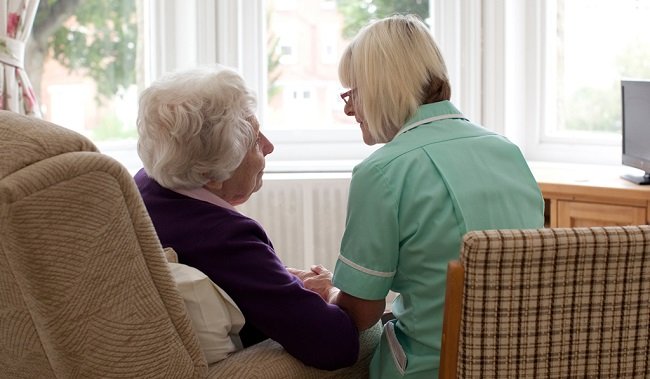Caring for the Elderly Part 12
Greenwich Town Hall
Long-term care can often end with a bereavement; which is a complex subject in itself. I will not be discussing grief in this post, as that is an immensely personal and subjective experience that we deal with in our own way. Instead, I would like to talk about the administrative and logistical problems that arise after someone has died and use my own recent experiences as an example. My Father died on Wednesday 16th September. He had a series of strokes in 2016 which left him disabled. Over the last four years his level of health has slowly deteriorated and his quality of life has subsequently diminished. This year saw a noticeable change not only in his well being but overall attitude. His stoical outlook finally faded and he lost all interest in life. He fell ill in mid August with Sepsis and then developed a lung infection. When I saw him last on Friday 4th September he told me he was tired and wanted “an end to it all”. Six days later he asked the Senior Doctor on the ward to stop treatment, which wasn’t working anyway. He died a week later on Wednesday 16th September. He was 91.
In the UK the first and most important administrative task that needs to be done after a bereavement is to register the death of the deceased. Because my father died in Queen Elizabeth Hospital and not at home, his death had to be registered with Royal Borough of Greenwich and not Bexley where he lived. The Medical Examiner discussed my Father’s care with the Doctor who was responsible for his medical treatment and then called me to explain what cause of death they would be putting on the death certificate was Aspiration Pneumonia. They then notified the Registrar who set up a telephone interview with me. Traditional face to face meetings are suspended due to COVID-19. This phone call took place two day later. I went through some personal details that are required when registering a death. These are similar to those that are entered on a Marriage Certificate. I ordered 5 copies of my Father’s Death Certificate for administrative purposes. There was a fee for these. The registrar then gave me a code for the “Tell Us Once” website. This is a government online portal that confirms the details shown on the Death Certificate and notifies all relevant departments, such as tax, state pension etc.
What has become apparent during the course of my administrative endeavours is that it’s somewhat easier dealing with a bereavement if there’s a surviving spouse or partner. There is not always an immediate requirement for Probate in certain circumstances and fortunately my Mother meets these criteria. Therefore, the two most important administrative tasks currently outstanding are transferring my Father’s Teacher Pension to my Mother, along with having the deeds to the house put in her name. Both of these are common changes of circumstances and are well documented on their respective websites. The transfer of the pension requires the completion of a form and copies of my parents Marriage Certificate and my Father’s Death certificate. The house deeds are all managed via the Land Registry. This task is a little more complex but again due to the pandemic is now handled via the post, which means I don’t have to travel to the regional office in Croydon. I recently found a lot of paperwork pertaining to my parents paying off their mortgage in 1986, so I should have everything necessary. If I don’t the Land Registry can provide duplicates. Again there will be fees involved but nothing too expensive (although that is a relative term).
After the aforementioned tasks are completed, there are a few more outstanding changes of circumstance to be made but these are less complex. The UK has an ageing population and therefore bereavements are a common occurrence. Hence a lot of companies have a dedicated phone line and protocols in place to deal with such circumstances. So transferring account ownership of utility services such as gas, electricity, water, internet access along with Council Tax is relatively simple. Claiming the life insurance policy that my Mother had for my Father also appears to be straightforward and only requires the completion of a form along with a copy of the Death Certificate. My parents shared a joint bank account from which all major household bills are paid. The only change required here is to take my Father’s name off the account. His personal account is now “frozen” and will be closed. The assets will be paid to my Mother. All of which are within the tax threshold so there’s no dealings with HMRC.
Eltham Chapel
The only other administrative and logistical matter arising from my Father’s death is his funeral. Like most of the UK population, my Father will be cremated. At present Government Guidelines allow up to 30 people to attend the service, however, there is a major caveat regarding this depending upon the capacity of the Crematorium. Social distancing has to be observed. As of writing this post I haven’t yet been to the Funeral Directors, although I have an appointment for Monday. It will be interesting to see what size restrictions there will be if any. There will only be about 10 people well enough to come to my Father’s funeral anyway. Both my Mother and Sister will not be able to attend due to ill health. I’m also curious to see if Co-op Funeralcare (who I have contracted to deal with proceedings) offer more contemporary services. My Father stipulated that he didn’t want any floral tributes so I wonder if the funeral directors will set up a “JustGiving” page for charitable donations or whether that falls to me?
Once all the above has been carried out then all the major administrative tasks arising from My father’s death will have been done. Then there’s the more difficult task of going through his personal effects and deciding what to do with them all. This is another one of those situations where there isn’t a standard solution. For some people, this part of a bereavement is the most difficult to deal with, as it brings to mind so many personal memories. However, I am not overly sentimental about such things and my parents' house is cluttered and needs to be clear out. This will create space so I can make some home improvements. Hopefully this will help me make my Mother’s daily life better. Dealing with all these administrative issues is a very curious experience. I have experienced it once before when my Father-in-law died, so I was somewhat prepared this time. As bank accounts are closed and my Father’s details are erased from various companies and public bodies, it does bring home the fact that life goes on, regardless of an individual or a family's grief. But these tasks, painful as they may appear, have to be done. Ignoring them only makes a difficult situation worse.


















